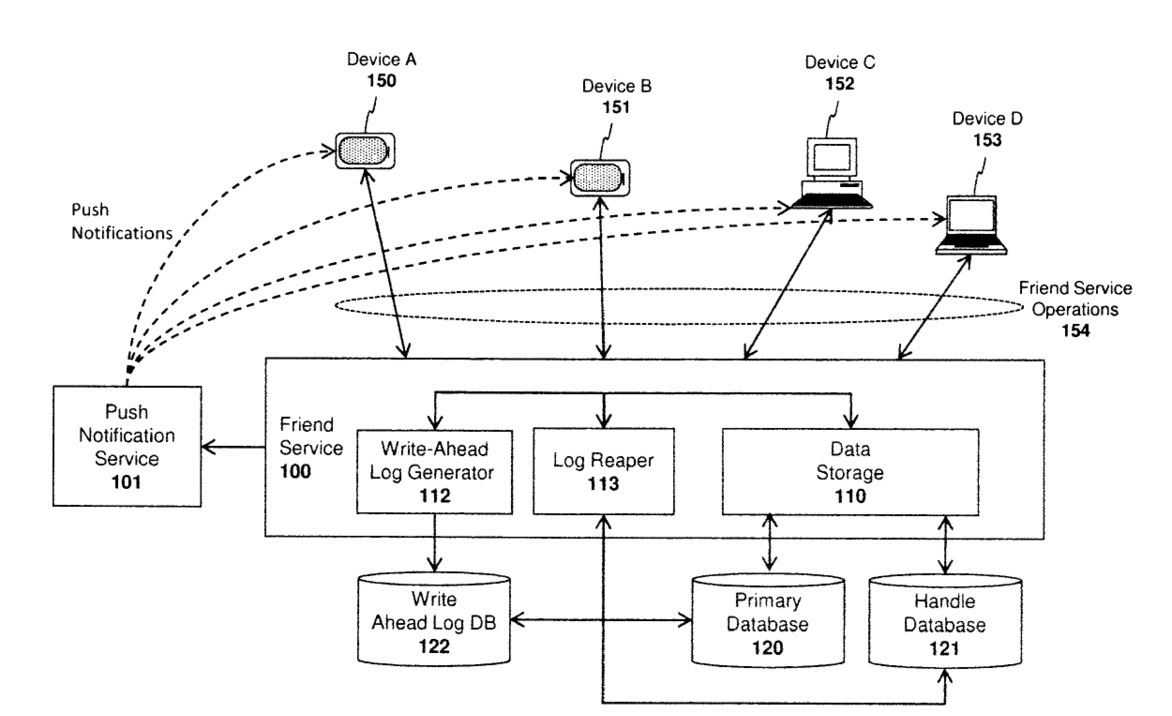Apple wants to get into social networking, but not as a rival to Facebook or Twitter. Instead, the iPhone maker envisions a way to better protect mobile users against spammers and stalkers.
Tuesday, the United States Patent and Trademark Office approved a 2010 application for a friend service of sorts which could underlie current social networks.
The patent titled “Apparatus and method for efficiently managing data in a social networking service” describes methods for maintaining three databases which oversee friends within a network, handles for out-of-network contacts and a third to log changes. Among the potential advantages: preventing a flood of friend requests and ignoring contact attempts by stalkers…
Apple’s U.S. Patent No. 8,396,932 how to ensure data consistency between friend service data records.
For example, Apple writes in one embodiment, a key may be generated for each update to friend state records, representing each of the operations. The same key would be used to create an entry in a write-ahead log database, with each entry specifying the operation to be performed on the friend state records.
If the plurality of friend state records are successfully updated, then the entry in the write-ahead log database may be deleted. However, if the plurality of friend state records are not successfully completed, then the entry is not deleted from the write-ahead log database.
The friend state records associated with old entries in the write-ahead log database are checked for consistency and inconsistent records are repaired. In addition, optimistic locking techniques may be used in one embodiment to improve performance of the friend service database.
In layman terms, “each time a user sends a request, their spammer count value is upped by 1 until a predefined threshold is reached,” AppleInsider writes. Similarly, each time you deny a friend request, the person’s “stalker count ” will increase by 1.
When a predetermined level is reach, further requests are ignored.
In a sign that Apple hopes its system will be used by larger social networks, the company will offer the system to developers who can then integrate it into mobile social networking apps, as well as desktop software.
The introduction of Apple’s enhanced social networking backend follows Ping, the 2010 music-focused social network that never got off the ground.
Ping’s 2010 introduction and the 2010 patent filing prompts some to question whether Apple’s database service might have been part of its attempt to build a Facebook rival or something entirely new.
